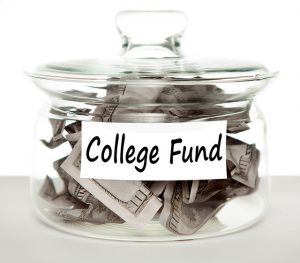
College education is a core part of social mobility in the United States, but it is also increasingly controversial. Amid polarizing views on trust in colleges and universities and a proposed plan to tax graduate students’ tuition waivers, Americans are facing big questions about the role of higher education in our society.
Now, there’s a new twist. In an op-ed column for The New York Times, UC Merced sociologist Charlie Eaton looks at how some private schools are tied up in the Paradise Papers exposé. Eaton writes,
“It’s an increasingly bipartisan view that elite private colleges are islands of wealth. And there’s good reason for that: It’s true … the Paradise Papers revealed that dozens of wealthy college endowments use Caribbean islands as offshore tax havens for their investments.”
Eaton argues that this revelation is in line with a long term trend toward inequality in higher education, where some schools show a broad commitment to educating a wide range of people, while others stockpile their resources to serve a small student body. Elite private schools often enroll a limited number of students, drawing a large proportion from “the 1 percent.”
“The problem with enormous endowment growth is that private institutions have not used the resource boom to provide greater benefits to the public … America’s top public universities, on the other hand, have substantially increased their enrollments since the 1970s despite shrinking state funding. They also tend to enroll low-income students at much higher rates.”
In a time where more people are skeptical of colleges and universities, scandals like this pose a central question for the future of higher education: can private schools provide a leg up, or will they have to find another way to pay out?

Comments 5
JackJrJ — May 15, 2021
Education is a necessary part of our life. But, before entering college/university it's essential to ask yourself "Who am I?" and "What do I want to get from life?" to understand your ambitions and goals. Recently, I've needed to write an article on that topic and I've used https://samploon.com/free-essays/who-am-i/ as it's a little bit complicated task. It's important to know what you want to do, what is interesting for you - leadership or personal development. In any case, education gives knowledge, and only a person decides how to apply them.
JoelD Curtis — March 6, 2022
All of this is a point of view. And depends on your kids and how they are doing in school! Some parents have no choice it's their only time they can get off from work. For others there are circumstances. I feel they are my children and if it's a park or a hiking trip anything it's my right and choice. But tell you what life goes very fast and is short, live in the day make memories and be with those you love.
chek this site — March 12, 2022
Eaton contends that this disclosure is in accordance with a drawn out pattern toward disparity in advanced education, where a schools show an expansive obligation to instructing a wide scope of individuals, more information related chek this site while others reserve their assets to serve a little understudy body in a period where more individuals have misgivings of schools and colleges.
JosephE Richmond — March 12, 2022
Eaton contends that this disclosure is in accordance with a drawn out pattern toward disparity in advanced education, where a schools show an expansive obligation to instructing a wide scope of individuals, more information related chek this site https://www.careersbooster.com/ while others reserve their assets to serve a little understudy body in a period where more individuals have misgivings of schools and colleges.
StevenC — February 21, 2023
Thanks for sharing